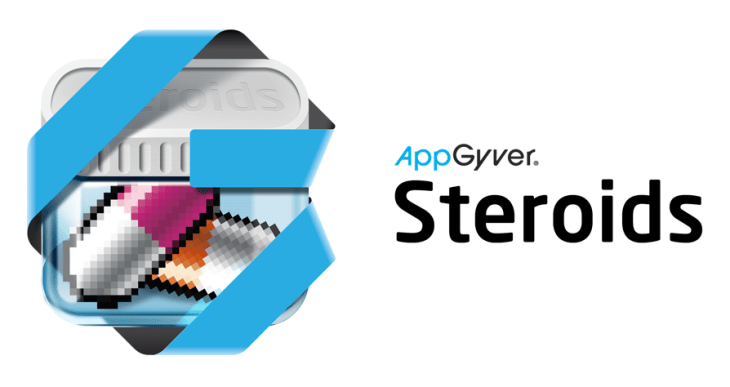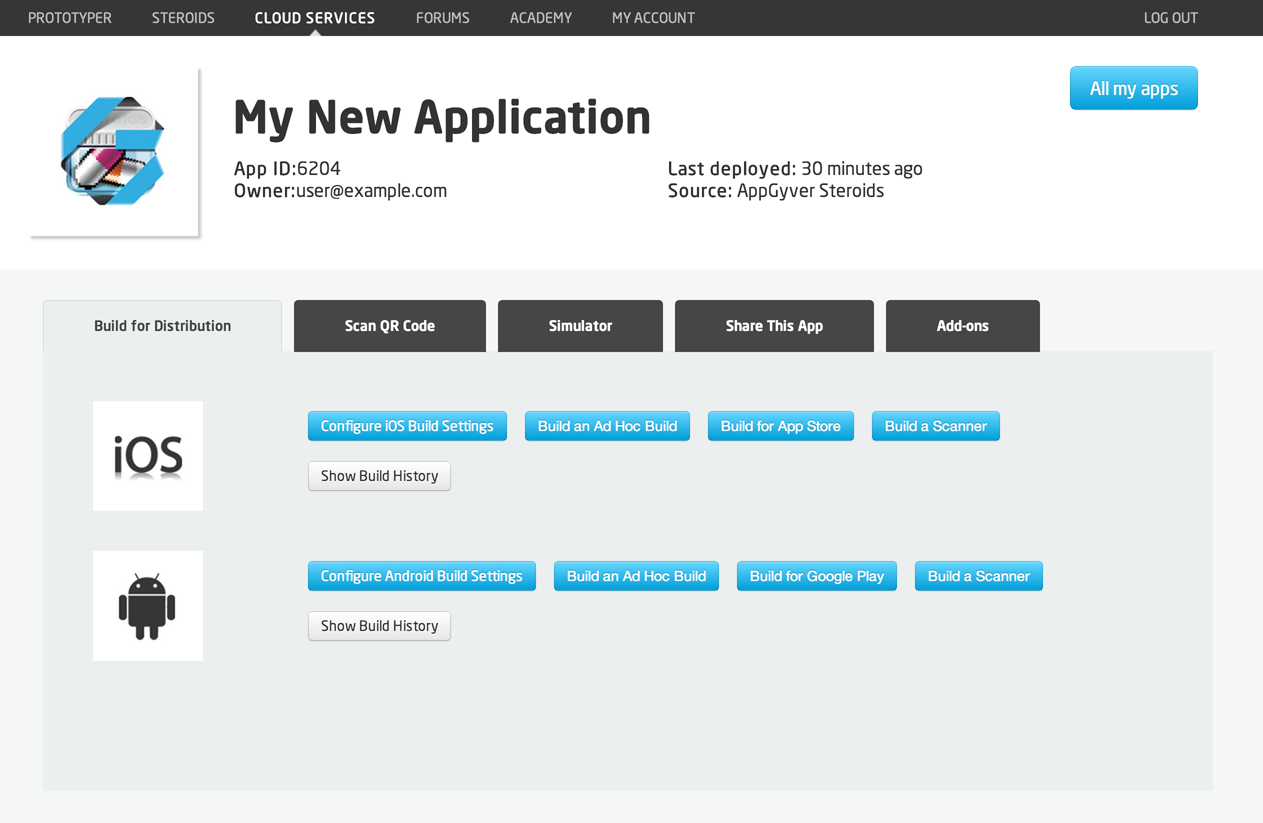Adobe’s PhoneGap mobile app development framework for bringing HTML5 hybrid apps to mobile devices is incredibly popular, but even though developers love the fact that they can write cross-platform re-usable code with it, it’s not exactly known for being very fast. Steroids.js, a new project from AppGyver which officially launched today, aims to bridge this gap by combining PhoneGap’s solution with access to native user-interface components, navigations and animations.
Steroids then lets developers easily add these to PhoneGap HTML5 apps to allow them to build “HTML5 hybrid apps with animation and other performance results that are indistinguishable from those of native apps.”
As AppGyver founder and CEO Marko Lehtimaki noted when I talked to him earlier this week, the system is fully compatible with PhoneGap and even supports PhoneGap plug-ins. The tool has been in development for about 18 months now, he told me, and has been in private beta for almost a year. Now, the AppGyver team believes, it is ready for prime time and “fully battle-tested and production ready.” Lehtimaki told me his team has spent almost eight man-years working on fixing PhoneGap’s performance issues.
The use of PhoneGap at the core of Steroids also means you get the same kind of hardware access as regular PhoneGap apps, including support for the device’s camera and microphone, for example. Steroids also has built-in CoffeeScript and Sass support and allows you to quickly set up a Ruby On Rails-like scaffold for your apps, featuring a number of generators to get your started. Overall, Lehtimaki estimates, using Steroids can speed up development times by up to 30 percent.
For developers, one of the nifty features of Steroids is that you can easily connect it to your device and see your code in action right away. Pushing an update to the device just takes one click and for debugging, the team integrated the Safari Development Tools to let you make changes to your code on the fly.
For easy ad-hoc distribution of the new app, Steroids uses a QR Code that you can quickly scan to load the app onto your device.
Steroids is free for developers who want to just give the service a try and for anybody who wants to develop open-source software with it. AppGyver also offers a commercial license, starting at $60 per month, for those who plan to release an app under their company name and for freelancers who will be developing for companies.

